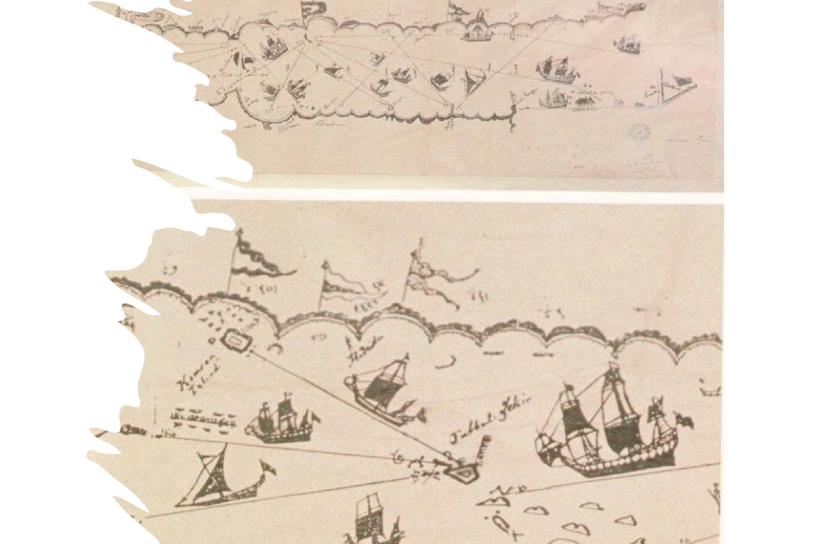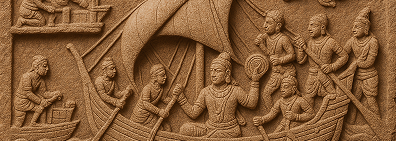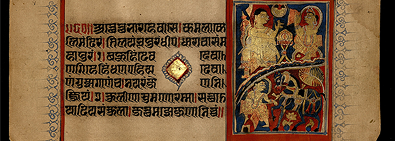Currently, the Centre runs a Research Centre project in collaboration with K J Somaiya Institute of Dharma Studies- funded by the Ministry of Education. This intern centric project is focused on the theme of Maritime Shipbuilding, Seafaring and Navigation Tradition. Seafaring Knowledge and Nautical Science in the Indian Ocean World since 2023. Dr. Chhaya Goswami is the Principal Investigator and Co -PI is Dr. Pallavi Jambhale. Another theme on Artistic Tradition is Co investigated by Dr. Monalisa Behera and Dr. Bhagyashree Bavre.
- It investigates the tacit knowledge of Malam navigators, shipbuilding techniques and indigenous nautical mapping systems compounded by maritime communities across the Gulf of Kachchh i.e. North west coast of India, the Arabian Sea and the Red Sea.
- Explores the scientific dimensions of wind patterns, celestial navigation, and ecological adaptations embedded in traditional seafaring practices.
- Examines the movements of Indian, Arab, and Persian merchant communities and their roles in shaping hybrid cultural identities across the Indian Ocean rim.
- Understanding the transoceanic lexicon exchange, religious practices, and settlement patterns in port cities from Muscat to Mandvi.





